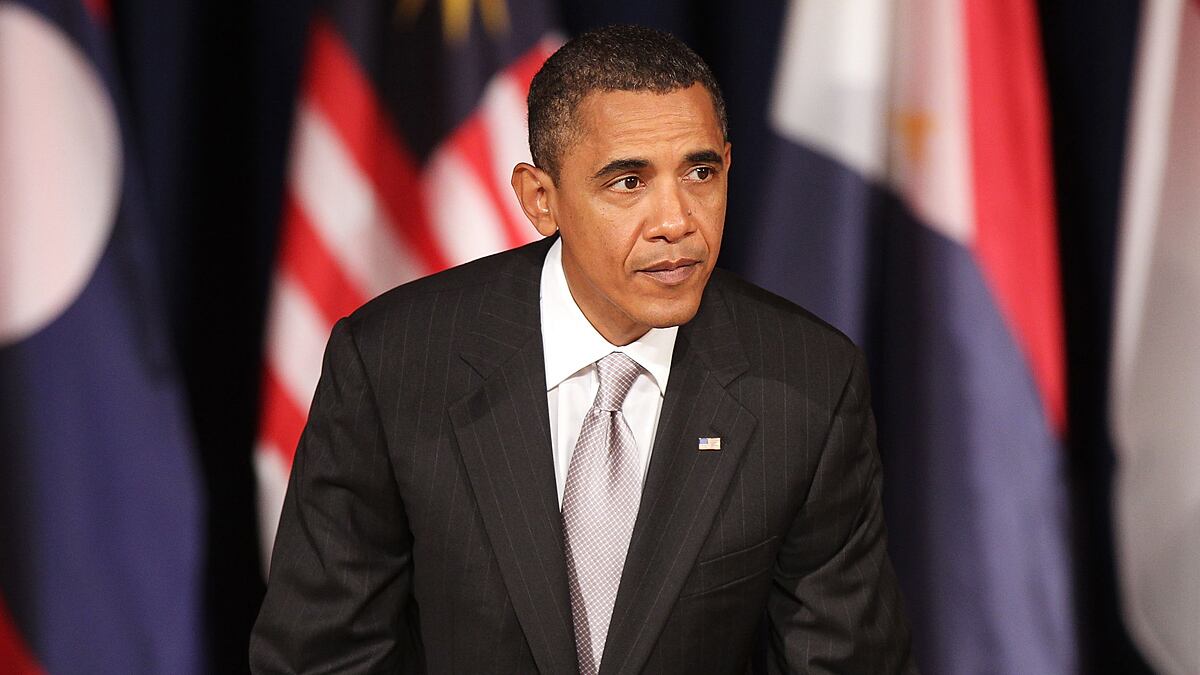President Obama said last fall in a speech at the United Nations that he wanted governments to be transparent: “In all parts of the world, we see the promise of innovation to make government more open and accountable,” he told the U.N. General Assembly in September 2010.
White House officials quickly went to work, putting together a group of people from Washington and other capitals in an effort to realize Obama’s vision of a more democratic and transparent world, and the results of their effort, the Open Government Partnership, will be formally launched Tuesday afternoon at the Waldorf-Astoria in New York. According to a senior aide, Obama is planning to sit at a table with leaders of nine civil-society groups and eight countries, including Brazil and Indonesia, all of whom are working toward the common goal of making governments more accountable. The president will describe the program and its goals.
The Open Government Partnership builds on a theme of Obama’s presidential campaign, which emphasized transparency (“No more secrecy!”), and also reflects core principles of his administration: multilateralism; a soft-pedaling of democracy promotion, as opposed to President Bush’s turbo-charged Freedom Agenda; and a focus on grassroots activism. Obama is starting the program in a modest way, with only a handful of member countries, rather than the dozens who usually join these kinds of ambitious global initiatives. It’s a wise move, says Carnegie Endowment’s Thomas Carothers, explaining, “Quality over quantity is a good approach to get around the problem of meaningless sign-on’s.”
Yet not everybody is enthusiastic. For some, the president’s call for transparency is rich in irony: He may be enthused about the Open Government Partnership, but, as his critics are quick to point out, he is known here in Washington for cracking down on officials accused of leaking information, and during his administration government lawyers have routinely invoked a states-secrets defense in national-security cases, carrying on the tradition of President Bush. “The continued invocation of state secrets remains troubling,” says Deborah Pearlstein, a human-rights expert who teaches at Cardozo School of Law. “It can terminate the case altogether, and there is no way to get redress.”

For these critics, the Open Government Partnership goals, which includes efforts to administer “justice equally and transparently,” as Secretary of State Hillary Clinton explained in a speech in Washington in July, simply highlight the ways that the administration has fallen short in its own promise of openness.
“I think the challenge always in being effective with our allies is not opening oneself to allegations of hypocrisy,” Pearlstein says, “and the more complicated we make these decisions for us domestically, the harder it becomes for us to achieve our goals internationally.”
The people who work in the White House—and who helped create the program—say they are acutely aware of its weaknesses and also know that they will be vulnerable to criticism. That is the point: Be open and put things out there and let people attack, and then government officials, working with people in private industry and in civil society, can refine the programs and make them better.
“The accountability comes less from metrics than from accountability to your own people,” says Samantha Power, a member of the National Security Council who works on multilateral issues. “We trust that if we give this program the profile it deserves, the implementation of each country’s commitments will be picked apart by journalists, opinion writers and by particular constituent groups, and that’s where the accountability comes from, rather than through an international ranking.”
So far, the people who have worked on the Open Government Partnership have done some good things: officials at federal agencies have disclosed more information through the Freedom of Information Act than in the past, for example. Federal officials have made full disclosures (which means they released un-redacted documents) for more than half of the requests in the last fiscal year, marking a 6 percent increase over the previous fiscal year—and it was also the first year in the past decade that the number of these disclosures increased (PDF).
Meanwhile, in India, a website called I Paid a Bribe has been created, shedding light on corruption in that country. And in Kenya, citizen-monitoring websites began publishing voting records of elected officials.
Still, plenty of work remains to be done, and even those who admire the goals of the Open Government Partnership, or seem pleased that the group was formed, wonder how things will turn out.
“Will it have teeth?” asks Carnegie Endowment’s Carothers. “It’s a soft mechanism—useful, but very soft.”
The members of the partnership are planning to meet again in the spring; people around the world, and especially democracy and transparency advocates, are eager to see if the group will deliver on its promise.






